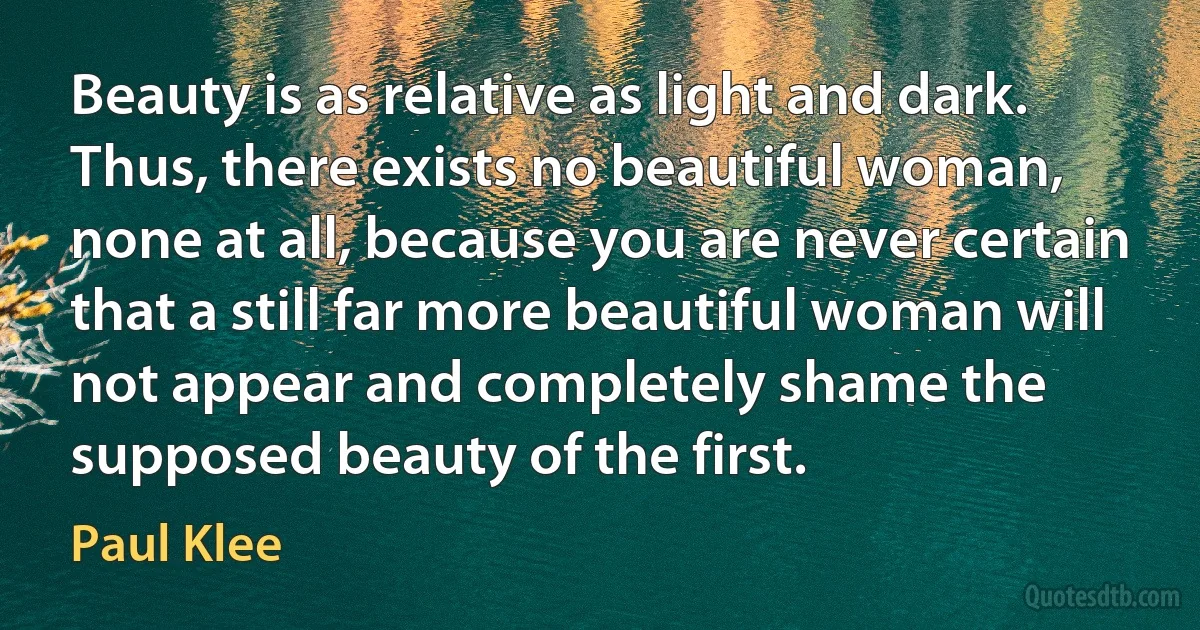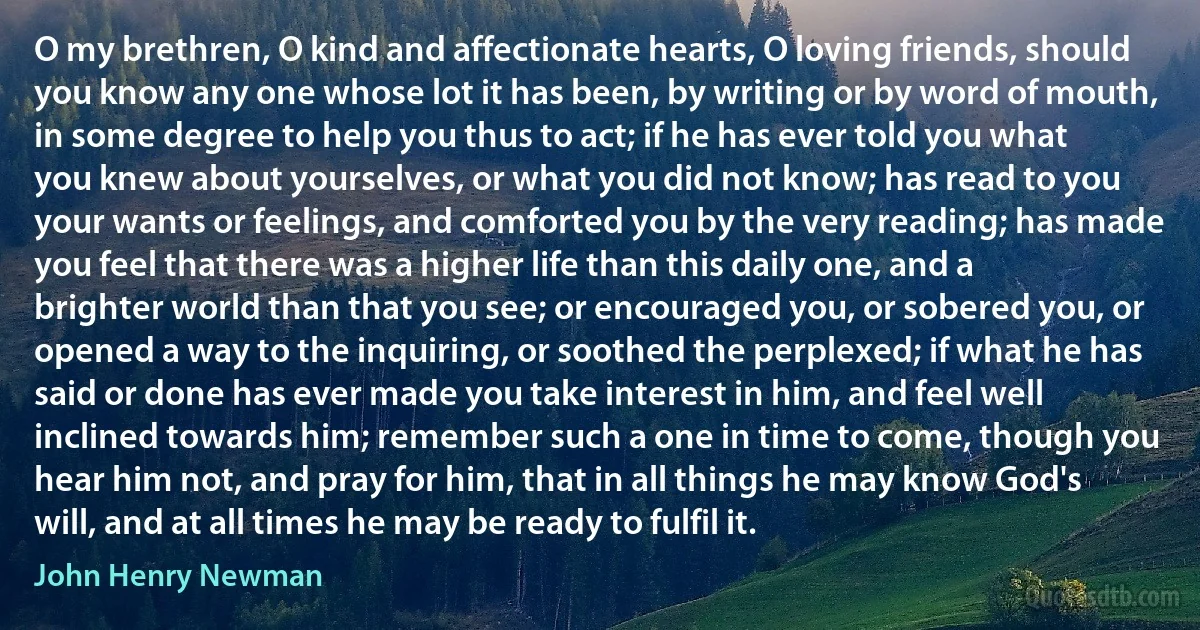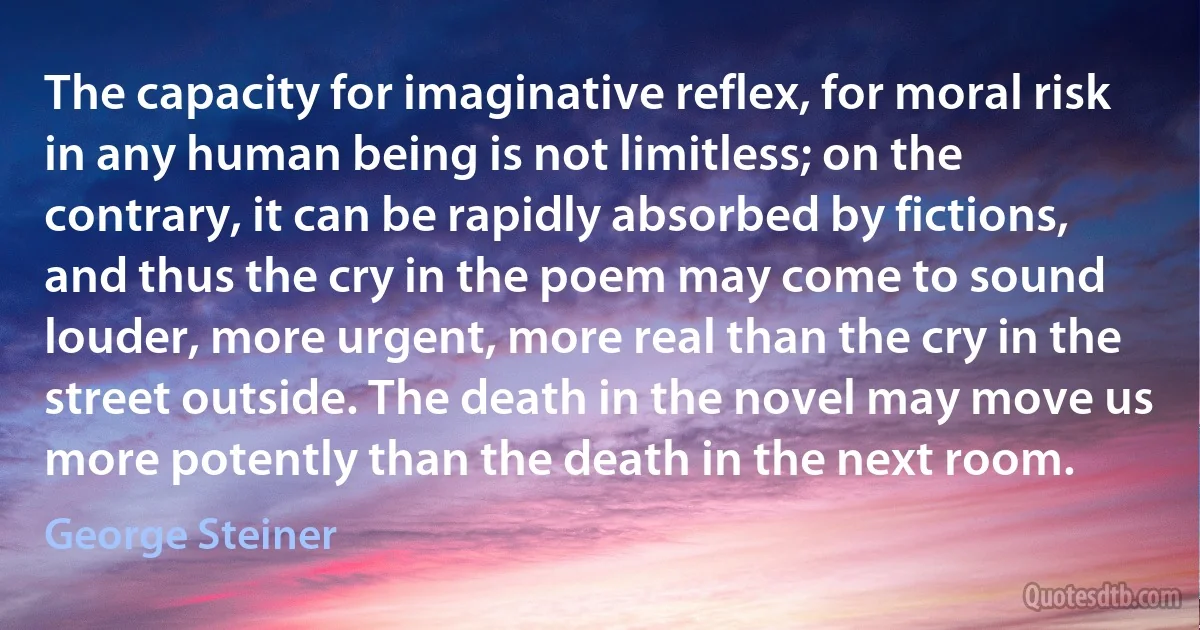Thus Quotes - page 51
lf the attribute of popular government in peace is virtue, the attribute of popular government in revolution is at one and the same time virtue and terror, virtue without which terror is fatal, terror without which virtue is impotent. The terror is nothing but justice, prompt, severe, inflexible; it is thus an emanation of virtue.

Maximilien Robespierre
Just as divorce according to the Saviour's word was not permitted from the beginning, but on account of the hardness of our heart was a concession of Moses to the human race, so too the eating of flesh was unknown until the deluge. But after the deluge, like the quails given in the desert to the murmuring people, the poison of flesh-meat was offered to our teeth. ... At the beginning of the human race we neither ate flesh, nor gave bills of divorce, nor suffered circumcision for a sign. Thus we reached the deluge. But after the deluge, together with the giving of the law which no one could fulfil, flesh was given for food, and divorce was allowed to hard-hearted men, and the knife of circumcision was applied, as though the hand of God had fashioned us with something superfluous. But once Christ has come in the end of time, and Omega passed into Alpha and turned the end into the beginning, we are no longer allowed divorce, nor are we circumcised, nor do we eat flesh.

Jerome
A dreadful rumor reached us from the West. We heard that Rome was besieged, that the citizens were buying their safety with gold, and that when they had been thus despoiled they were again beleaguered, so as to lose not only their substance but their lives. ...The speaker's voice failed and sobs interrupted his utterance. The city which had taken the whole world was itself taken; nay, it fell by famine before it fell by the sword, and there were but few to be found to be made prisoner.

Jerome
Exercise is the technique by which one imposes on the body tasks that are both repetitive and different, but always graduated. By bending behavior towards a terminal state, exercise makes possible a perpetual characterization of the individual...It thus assures, in the form of continuity and constraint, a growth, an observation, a qualification.

Michel Foucault
The different pieces of evidence did not constitute so many neutral elements, until such time as they could be gathered together into a single body of evidence that would bring the final certainty of guilt. Each piece of evidence aroused a particular degree of abomination. Guilt did not begin when all the evidence was gathered together; piece by piece, it was constituted by each of the elements that made it possible to recognize a guilty person. Thus a semi-proof did not leave the suspect innocent until such time as it was completed; it made him semi-guilty; slight evidence of a serious crime marked someone as slightly criminal. In short, penal demonstration did not obey a dualistic system: true or false; but a principle of continuous gradation; a degree reached in the demonstration already formed a degree of guilt and consequently involved a degree of punishment.

Michel Foucault
If you loved as I do, she earnestly replied, you would not have so nearly lost me - these scruples of false delicacy and pride would never thus have troubled you - you would have seen that the greatest worldly distinctions and discrepancies of rank, birth, and fortune are as dust in the balance compared with the unity of accordant thoughts and feelings, and truly loving, sympathising hearts and souls.

Anne Brontë
We do not know nature; causes hidden in her breast might have produced everything. In your turn, observe the polyp of Trembley: does it not contain in itself the causes which bring about regeneration? Why then would it be absurd to think that there are physical causes by reason of which everything has been made, and to which the whole chain of this vast universe is so necessarily bound and held that, nothing which happens, could have failed to happen,-causes, of which we are so invincibly ignorant that we have had recourse to a God, who, as some aver, is not so much as a logical entity? Thus to destroy chance is not to prove the existence of a supreme being, since there may be some other thing which is neither chance nor God-I mean, nature. It follows that the study of nature can make only unbelievers; and the way of thinking of all its more successful investigators proves this.

Denis Diderot
To forgive purely because it is nicer to forgive, and to do so when it's a tough call; to try to speak only kindly of those we know because it is preferable to do so; to enjoy the successes of others because living thus is more enjoyable than the stress of living resentfully: such kind things make us better, lovlier people. And to try to live this way for its own merits, without invoking a supernatural reason for doing so, is to celebrate our humanity and to give kindness back its teeth.

Derren Brown
Marxism emerged not only with the intention of explaining scientifically everything in the world, but in addition to this, as a representative of the ‘hurt and injured' classes of the world, expressing thus the centuries old dream of an earthly paradise. But dreams and wishes have nothing to do with science.

Aleksandr Zinovyev
The rank of men, as established by the concurrent judgement of ages stands thus: heroes, legislators, orators, and poets. The most useful and, in my opinion, the most honourable is the legislator, which so far from being incompatible with the profession of law, is congenial to it. Generally, mankind admire most the hero; of all, the most useless, except when the safety of the nation demands his saving arm.

Henry Lee III
But, whenever a portion of this facility we may suppose even the greatest Poet to possess, there cannot be a doubt that the language which it will suggest of him, must, in liveliness and truth, fall far short of that with is uttered by men in real life, under the actual pressure of these passions, certain shadows of which the poet thus produced, or feels to be produced, in himself. However exalted a notion we would wish to cherish of the character of a Poet, it is obvious, that, while he describes and imitates passions, his situation is altogether slavish and mechanical, compared with the freedom and power of real and substantial action and suffering.

William Wordsworth
Bobbio's theoretical defence of the distinction between Left and Right, for all its eloquence, may thus be more vulnerable than it appears. If we ask why this should be so, the answer surely lies in the difficulty of constructing an axiology of political values without coherent reference to the empirical social world. Bobbio often writes as if he could separate his ideal taxonomy from contemporary history, but of course he cannot. In practice he admits the political scenery of the present into his account selectively, for the purposes of his argument. But it is in that present that the deeper reasons and limits of his intervention lie.

Perry Anderson



